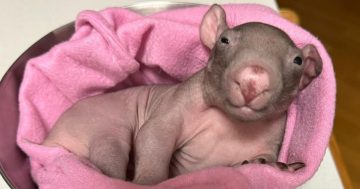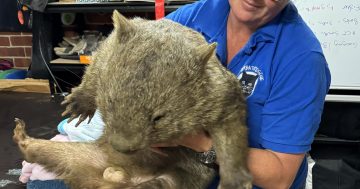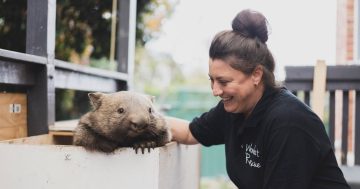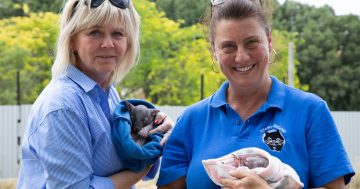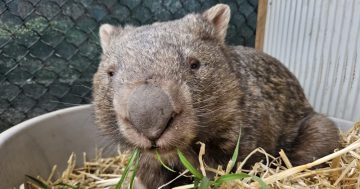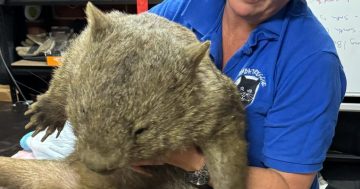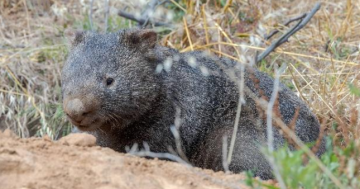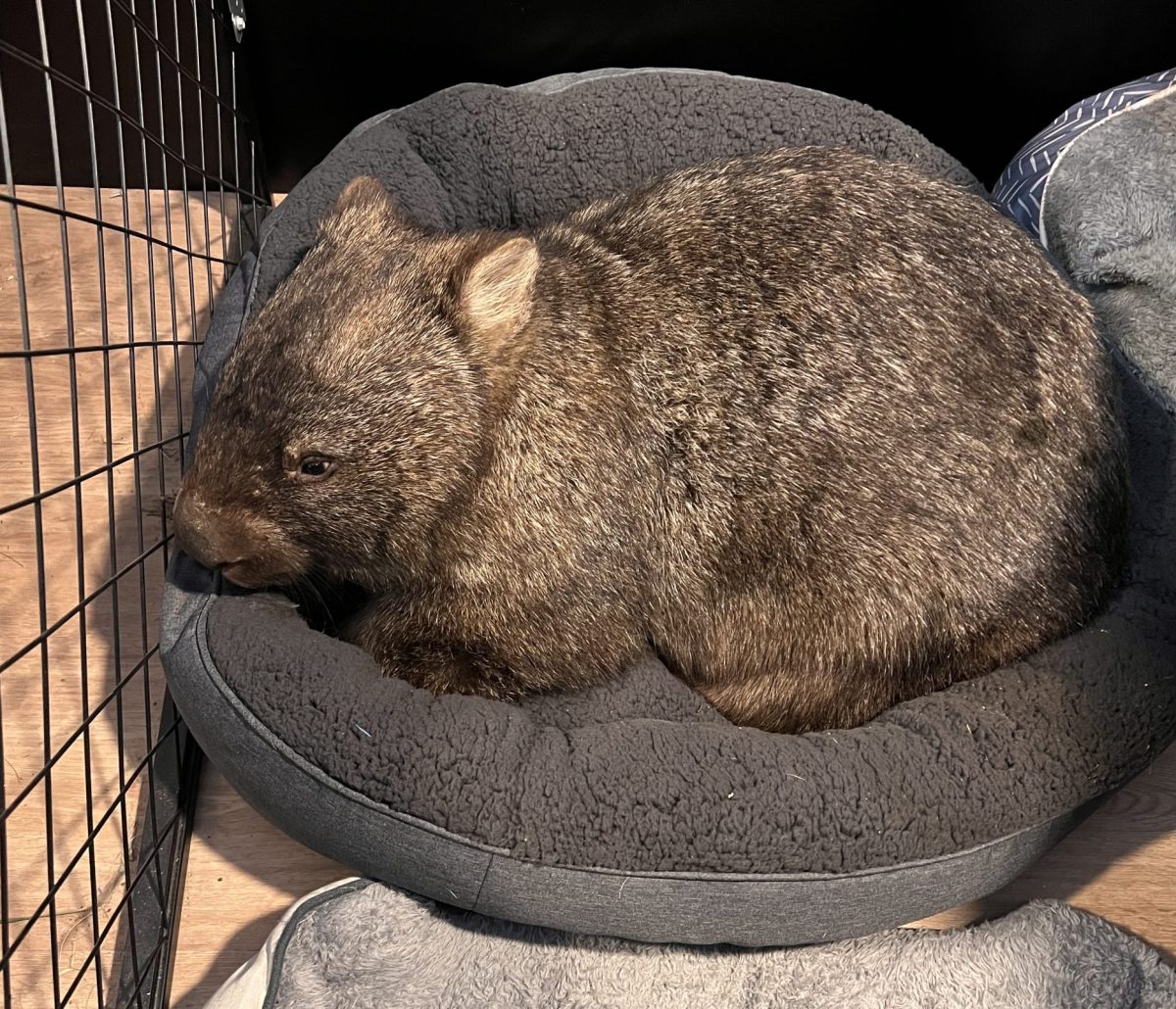
Sleep is the best medicine for Dexter, the wombat who survived multiple gunshot attacks. Photo: Shelby Hind.
Dexter the wombat, whom ACT wildlife rescuers believe was shot four times with a .22 rifle, is expected to survive and be returned to the wild once his wounds heal.
The wombat was discovered last week when he ventured close to a shed near a Hoskintown property on the ACT-NSW border. When rescuers arrived he was on the move, slowly, so they knew he was in trouble.
Wildlife rescuer Shelby Hind, who works with both ACT Wombat Rescue and Wildcare Queanbeyan, said they initially thought he had been hit by a car, but after x-rays were taken, fragments of four .22-calibre bullets were found in him. He also had a number of infections from what looked to be earlier wounds.
“When I got to him, he was three-legged lame,” Shelby said.
“Some of the x-rays showed where the wounds had healed over the bullets so they happened a while ago while one hit the shoulder bone and couldn’t be expelled.
“He was in a fair bit of pain when I got him. His fractures were quite bad.
“Wombats are usually pretty smelly at the best of times, but the rescuer said she could still smell the infection in her car days later, so it must have been pretty bad.”
Shelby has been caring for Dexter 24/7 since he was rescued, treating him with antibiotics and painkillers, cleaning his wounds and applying TLC, which includes living in the wombat ICU – a temperature-controlled box with a camera attached so he can be watched constantly.
“He’s a strong bloke, so I think he’ll make a good recovery,” she said.
“Wombats’ heads are pretty big and thick, so it takes someone with a lot of skill to kill it with a .22.
“But the location of the bullets indicated they didn’t plan to kill him.”
Shelby said the person who shot Dexter “was a really bad shot and should return their gun”.
ACT Wombat Rescue’s founder Yolandi Vermaak described the shooting as “appalling behaviour”.
“We need to speak up every time animal cruelty happens, illegal shooting or any other harming actions we know happens like hitting them on purpose with a vehicle,” she said.
Shelby, who became a wildlife carer about three years ago, said she became interested because living across from a conservation area in Googong had become like a “wombat highway”.
After regularly seeing Yolandi Vermaak drive past, the two struck up a conversation.
“She was looking for reported sightings of mangy wombats so I offered to help.”
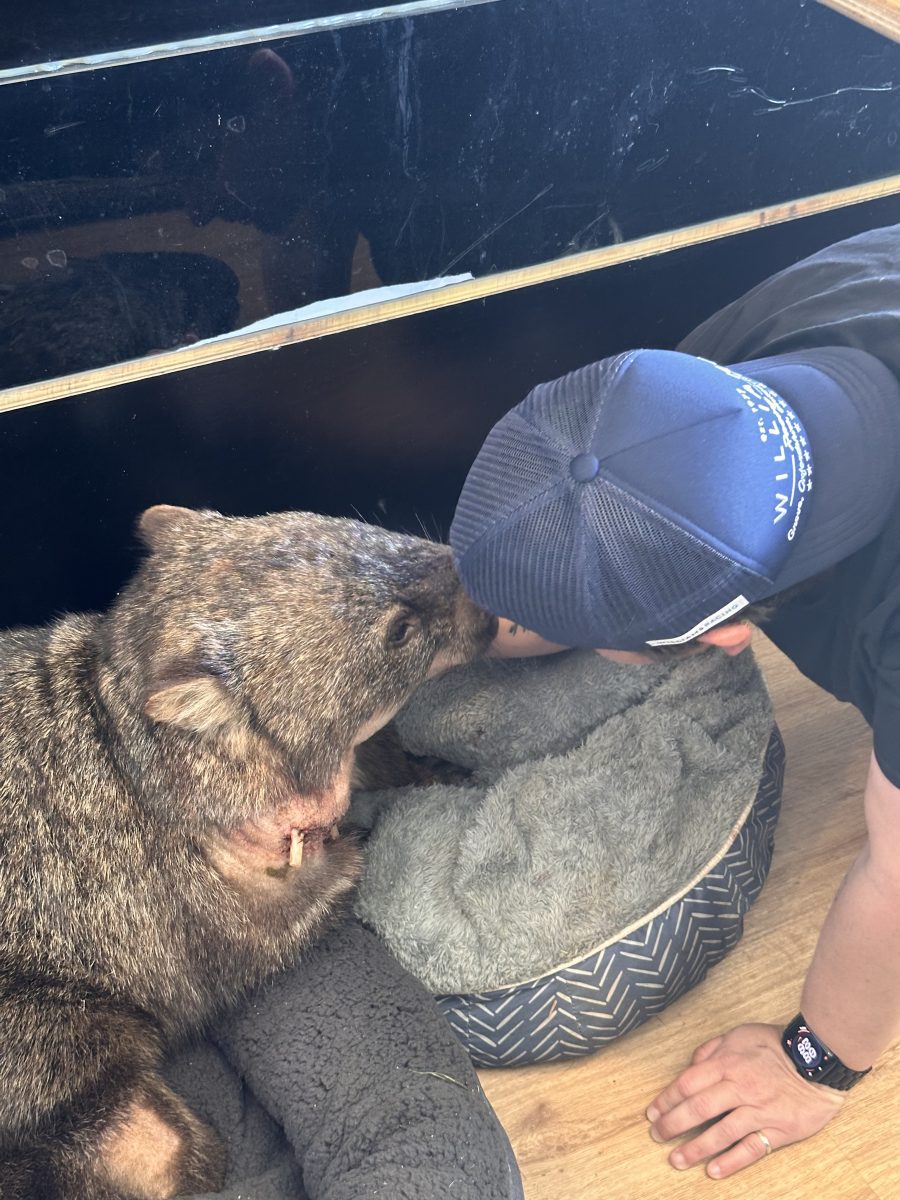
Rescue volunteer Shelby Hind has developed a close relationship with Dexter since she started caring for him last week. Photo: Supplied.
Shelby said although it was “a privilege” to care for Dexter, he was a “young, healthy male and should not be held in captivity”.
She said new habitats for such wombats were needed urgently – places with a bit of land, where the existing animal populations were healthy and where native grasses were plentiful.
With his drain now out, Dexter will stay in the ICU until all his wounds are healed before he is moved to an outdoor enclosure to improve his strength before going back into the bush in about six weeks.
Anyone with suitable land to rehome wombats like Dexter, or who would like to volunteer to become a carer, is urged to contact Wildcare Queanbeyan on 62991966 or ACT Wombat Rescue.


 It would be great if there could be some research into methods to make…
It would be great if there could be some research into methods to make… 









